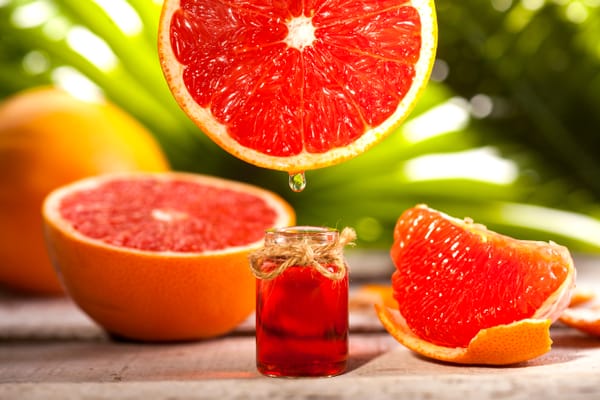Do Chia Seeds Go Bad? Shelf Life and Storage Tips
Learn if chia seeds go bad, how to spot spoilage, and the best storage tips to keep them fresh.

Chia seeds are a staple in many kitchens thanks to their incredible health benefits. But do chia seeds go bad? You might be surprised by how long these tiny powerhouses can last when stored properly. Let's dive into what you need to know about keeping your chia seeds fresh for as long as possible.
Table of Contents:
- What Are Chia Seeds and Their Nutritional Profile?
- Do Chia Seeds Go Bad? Understanding Shelf Life
- How to Store Chia Seeds Properly for Maximum Freshness
- Delicious Ways to Incorporate Chia Seeds into Your Diet
- Conclusion
What Are Chia Seeds and Their Nutritional Profile?
Chia seeds are making a comeback and are sprouting up on store shelves, packed into puddings, pretzels, and even jams. According to forecasts from Grand View Research, the market for chia seeds is expected to grow by more than 22 percent per year between 2019 and 2025. So what's all the fuss about? Let's dive into the nutritional profile of these tiny powerhouses.
Health Benefits of Chia Seeds
Chia seeds are packed with an impressive array of nutrients, including high amounts of fiber, protein, and healthy fats like alpha-linolenic acid (ALA), an essential omega-3 fatty acid. They also contain minerals like calcium, magnesium, and iron. Studies have shown that the high fiber content in chia seeds can aid in digestion, promote feelings of fullness, and even help stabilize blood sugar levels. The healthy fats found in chia seeds, particularly ALA, have been linked to improved heart health and reduced inflammation in the body.
Chia Seeds vs. Flax Seeds
While both chia seeds and flax seeds are nutritional powerhouses, chia seeds have a slight edge in terms of fiber content and antioxidants. However, flax seeds contain more lignans, which may offer additional health benefits. Chia seeds also have the advantage of being more versatile in recipes, as they can be consumed whole, while flax seeds need to be ground for optimal nutrient absorption. Ultimately, both seeds are excellent additions to a healthy diet.
Do Chia Seeds Go Bad? Understanding Shelf Life
Chia seeds have a relatively long shelf life compared to other seeds, typically lasting between two to five years when stored properly. However, like any food, they can eventually spoil.
Factors Affecting Chia Seed Shelf Life
Several factors can impact the longevity of your chia seeds, including: - Exposure to moisture: Chia seeds readily absorb water, which can lead to mold growth if stored in a damp environment. - Heat and light exposure: Prolonged exposure to heat and direct sunlight can cause the healthy fats in chia seeds to oxidize and go rancid more quickly. - Air exposure: Oxygen can also contribute to the oxidation process, causing chia seeds to spoil faster.
Signs of Spoiled Chia Seeds
So how can you tell if your chia seeds have gone bad? Here are a few signs to look out for: - Rancid smell: Fresh chia seeds should have a mild, nutty aroma. If your seeds smell sour or off, they may have gone rancid. - Clumping: If your chia seeds are clumping together, it could be a sign that they've absorbed moisture and may be starting to mold. - Bitter taste: Spoiled chia seeds may have a bitter or unpleasant taste compared to fresh seeds.
Risks of Consuming Spoiled Chia Seeds
Consuming spoiled chia seeds can lead to digestive issues like nausea, vomiting, and diarrhea. In rare cases, it may also cause more severe food poisoning symptoms. Always check for signs of spoilage before consuming chia seeds that have been stored for an extended period.
How to Store Chia Seeds Properly for Maximum Freshness
Proper storage is key to maintaining the quality and freshness of your chia seeds. Here are some tips to keep in mind:
Best Containers for Storing Chia Seeds
To maintain the freshness and quality of your chia seeds, store them in an airtight container made of glass, ceramic, or non-reactive plastic. This will help protect the seeds from moisture and air exposure, which can accelerate spoilage.
Ideal Storage Temperature and Humidity
Chia seeds should be stored in a cool, dry place away from direct sunlight and heat sources. The ideal storage temperature is below 68°F (20°C) with a relative humidity of less than 60%. If you live in a particularly humid environment, consider storing your chia seeds in the refrigerator.
Tips for Extending Chia Seed Shelf Life
To maximize the shelf life of your chia seeds, consider vacuum sealing them or storing them in the refrigerator or freezer. This can help prevent oxidation and maintain their nutritional value for up to five years. If you would like to maximize the lifespan of your chia seeds, you can place them in the fridge just as you would refrigerate nuts. This will lengthen the time they are fresh by a couple of years.
Delicious Ways to Incorporate Chia Seeds into Your Diet
Now that you know how to store your chia seeds for optimal freshness, let's explore some tasty ways to incorporate them into your daily diet.
Chia Seed Recipes for Breakfast, Lunch, and Dinner
Chia seeds are incredibly versatile and can be easily incorporated into a variety of dishes. Try adding them to your morning oatmeal, smoothies, or yogurt parfaits for a nutritious breakfast. For lunch and dinner, sprinkle chia seeds over salads, soups, or stir-fries for an extra boost of fiber and healthy fats.
Chia Seed Smoothies and Beverages
Chia seeds can also be used to create delicious and nutritious beverages. Blend them into your favorite smoothie recipes or mix them with water, lemon juice, and honey for a refreshing and hydrating drink. You can also make chia seed pudding by soaking the seeds in milk or plant-based milk alternatives overnight.
Chia Seed Desserts and Snacks
For a healthy twist on desserts and snacks, try incorporating chia seeds into your recipes. Make a classic chia pudding with fresh fruit and nuts, or use them as a topping for yogurt or ice cream. You can also mix chia seeds into homemade granola bars or energy bites for a satisfying and nutrient-dense snack. The easiest way to keep your chia seeds fresh is to simply use them more often. There are so many delicious ways to eat chia seeds and incorporate them into your daily diet, from main courses to drinks and desserts. We recommend throwing them into a smoothie for an extra boost of satisfying nutrition.
Key Takeaway:
Chia seeds are packed with fiber, protein, and omega-3s. They last 2-5 years if stored properly in airtight containers away from heat and moisture. Spoiled chia seeds smell rancid or taste bitter. Keep them fresh by storing in a cool place or fridge.
Conclusion
The truth is, like any other food item, chia seeds can eventually spoil. However, with proper storage—like using airtight containers and keeping them away from heat sources—you can extend their shelf life significantly. So next time you're wondering "do chia seeds go bad?" remember that taking a few simple steps can help you enjoy their benefits longer.




